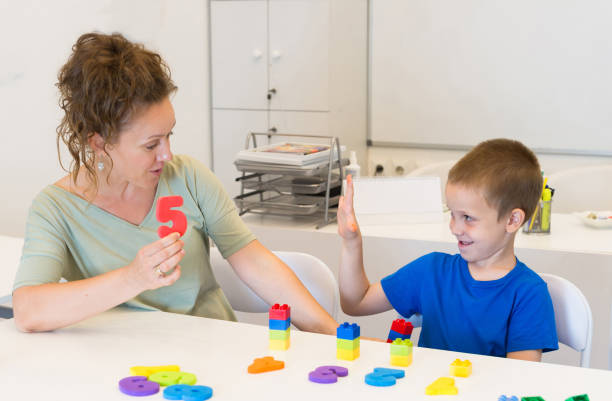Getting an NDIS occupational therapy assessment is one of the first steps in unlocking your potential. But how do you find the right provider and ensure your report meets the required standards?
Occupational therapy is an important part of any disability support plan. Read on for an insider’s guide to NDIS occupational therapy assessments and what to expect.

What is Occupational Therapy?
Occupational therapy involves working with children, adults, and seniors to build skills that improve their lives. This can range from boosting motor skills and balance for kids with delayed development to helping adults with disability manage their finances, build confidence, and find community activities.
This is often done in a clinic, hospital ward, residential care centre, or in the person’s own home, school, or workplace. An OT will analyse your disability and how it impacts your day-to-day life. They will then use this information to create a strategy that can help you overcome the challenges that you face.
Many OTs are skilled in a wide range of areas, including mental health rehabilitation, pain management, driving assessments, and paediatrics. They can also assist with arranging home modification, prescription of assistive technology and equipment, and designing programs for people with disabilities.
How Can Occupational Therapy Help You?
Unlike physical therapy, occupational therapy isn’t just focused on the body but also your mental and social health. It aims to help you overcome challenges that may be related to your disability and improve your quality of life in all aspects.
Your therapist will assess your needs and goals to develop a treatment plan. They will use a variety of techniques that may include exercise, equipment or adapting your environment. For example, they might suggest exercises to strengthen your muscles or provide you with a knee brace like the Royal Rehab LifeWorks Cairns to support your recovery and help ease pain.
The goal of Royal Rehab LifeWorks Cairns is to enable you to live independently and achieve your goals. They will work with you to find the right solutions for you that are both practical and cost-effective.
Depending on your needs, you might choose to receive occupational therapy from a specialist clinic or at home. Alternatively, you can opt to receive it from a registered NDIS provider. They will be able to support you in your home, community or in the workplace.
The NDIS can fund a wide range of allied health supports, including occupational therapy. However, you should note that the NDIS only pays for services deemed’reasonable and necessary’. This means that the support you are requesting must relate to your disability and is essential for achieving your daily activities.

How Can Occupational Therapy Help You With Your NDIS Plan?
NDIS occupational therapy Cairns can be a vital component of a person’s disability support package. It helps to boost motor skills, balance, and coordination for kids and adults alike, helping them take part in the activities they enjoy.
To get an idea of the kinds of OT supports you can access Royal Rehab LifeWorks Cairns, This will allow you to get a better understanding of your needs and the best ways to achieve them.
Once you’ve completed your functional assessment, it will be time to find an OT that suits your needs. You can use the HeyHubble marketplace to find quality NDIS providers that meet your budget and service needs. Our team of disability specialists can help you to shortlist OTs that have experience working with NDIS participants. We also ensure that the services you choose are capped at the NDIS price limits, so you can rest assured knowing you’re getting the most value from your NDIS funding.
Remember to check that your OT is registered with the NDIS before engaging them. This will allow you to make sure your support service is in line with the NDIS guidelines and is always paid for on time. You can also use our NDIS price limits tool to see what the maximum prices are for different supports in your area.
What Can Occupational Therapy Help You With?
NDIS participants are able to request occupational therapy services from NDIS-registered providers. You can use the NDIS’ ‘provider finder’ to search for these services, and you should have no trouble finding a provider near you that can deliver what you need.
In general, OTs can provide you with the tools and skills you need to enjoy your life more, including support for activities such as cooking, showering, shopping and more. They can also help with managing daily routines, improving your confidence and wellbeing, and helping you to plan for the future.
If you have an NDIS plan, your planner can include occupational therapy as part of a number of different support categories. These can include the ‘improved daily living’ sub-category, which can be used for assessment, training and therapy to improve your abilities and independence, and the’social and community participation’ sub-category, which can fund assistance with things like finding work and going out in the community.
For some participants, regular assistance from an OT is one of the most beneficial ways to make the most of their NDIS plan. However, it can be difficult to navigate the process of arranging an OT assessment, and many participants struggle with getting regular appointments. If you want to get started, you can start by gathering any relevant medical information and thinking about your goals for an OT assessment.





